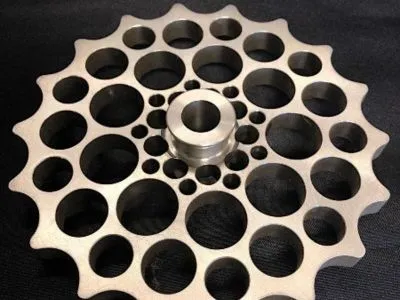 As a precision machining company, achieving extremely tight tolerances is essential to delivering high-quality, reliable parts. But what exactly defines the "tightest" tolerance, and how close can we really get? Let’s dive into the world of precision engineering and explore the limits of modern machining technology.
As a precision machining company, achieving extremely tight tolerances is essential to delivering high-quality, reliable parts. But what exactly defines the "tightest" tolerance, and how close can we really get? Let’s dive into the world of precision engineering and explore the limits of modern machining technology.
When it comes to precision, tolerances are measured in microns (μm) or thousandths of an inch (0.001"). While standard machining processes typically achieve tolerances of +/- 2 to 5 thousandths of an inch, the most advanced manufacturers push these boundaries to just a few microns. In fact, anything below 10 microns is considered highly specialized, and some top-tier machine shops consistently hold tolerances as tight as 5 microns or less on complex components.
Microns and Thousandths of an Inch
Understanding the scale of precision is key. A single micron is one-thousandth of a millimeter, which is incredibly small. For reference, a human hair is about 50–100 microns in diameter. So, when we talk about tolerances in the range of 1–5 microns, we're talking about accuracy that's beyond what the human eye can easily perceive. This level of detail is critical in industries where even the smallest deviation can lead to failure.
Medical Device Manufacturing
The medical industry is one of the most demanding when it comes to precision. Devices like implants, surgical instruments, and diagnostic tools require exacting tolerances to ensure safety and functionality. Even the slightest variation could result in a device not working properly or causing harm. Leading manufacturers in this field often achieve tolerances as tight as 1–3 microns, especially in applications like laser eye surgery, where precise alignment and clearance are essential.
Aerospace Component Tolerances
The aerospace sector also relies heavily on tight tolerances. Components must be lightweight, durable, and function flawlessly under extreme conditions. Whether it's jet engine parts, satellite components, or spacecraft systems, tolerances of 2 microns or less are common. These standards help ensure performance, safety, and longevity in environments where failure is not an option.
The Limits of Modern Machining
While sub-micron tolerances are possible, they require state-of-the-art equipment, strict environmental controls, and highly skilled operators. Factors like thermal expansion, vibration, and tool wear can all impact the final result. For many applications, 2–5 microns remains the practical limit that can be reliably achieved. However, for those who need even greater precision, specialized machines and optimized processes are necessary to reach nanometer-level accuracy.
Why Choose Cheetah Precision?
Cheetah Precision Machining has the expertise, technology, and experience to handle even the most demanding tolerance requirements. With advanced 5-axis milling, rigorous quality control, and a commitment to excellence, we deliver precision parts for industries such as aerospace, medical, and more. Whether you're looking for prototyping support or full-scale production, we’re here to meet your needs with confidence and consistency.
Contact us today at (651) 633-4566 to learn more about our capabilities and how we can help bring your precision machining projects to life.
Click to learn more about us.
Purple Powder,Permanent Purple Pigment
Guangzhou Chengbian Chemical Technology Co., Ltd. , https://www.gzcbct.com